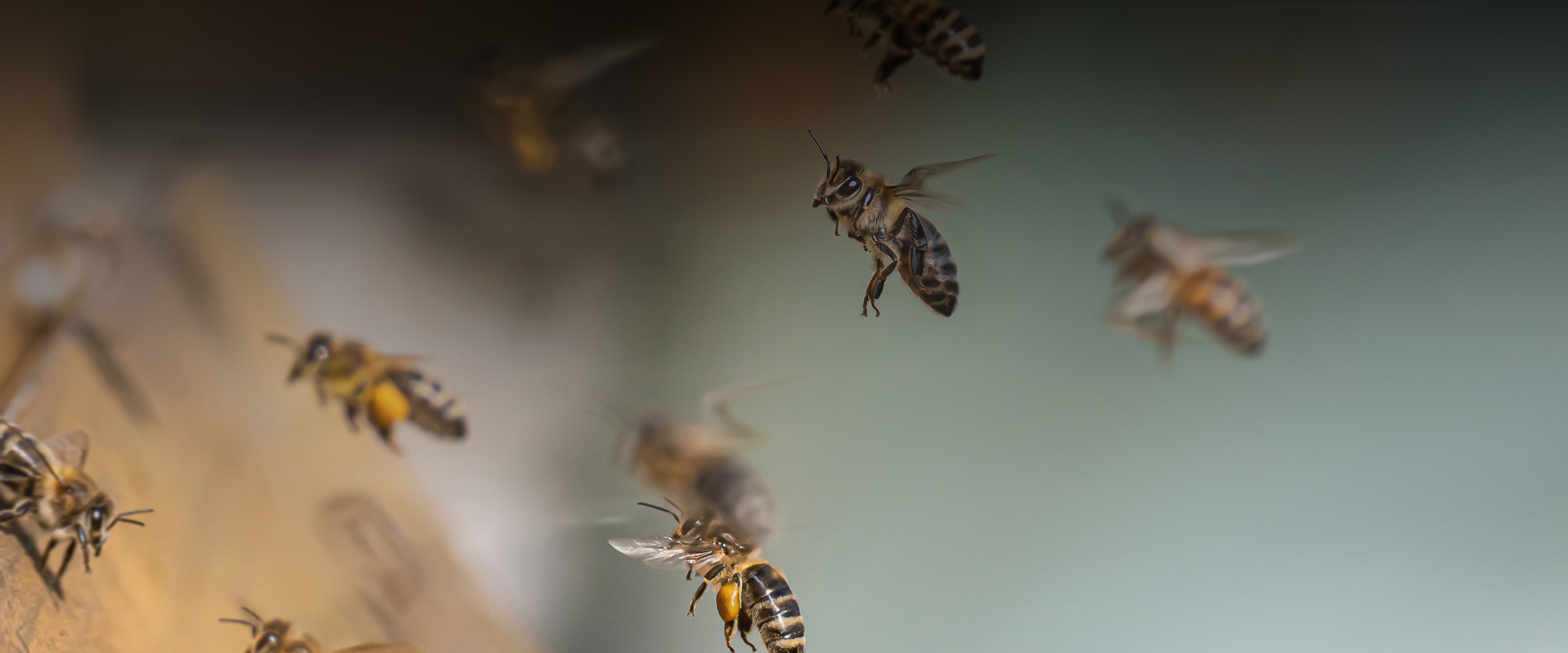
Our Ecosystem
Bucksbury Farm is designed to operate as a closed-loop agricultural system, where each component supports the others in a sustainable and efficient way. By ensuring that every output becomes an input elsewhere on the farm, we minimise waste, increase productivity, and promote environmental stewardship.
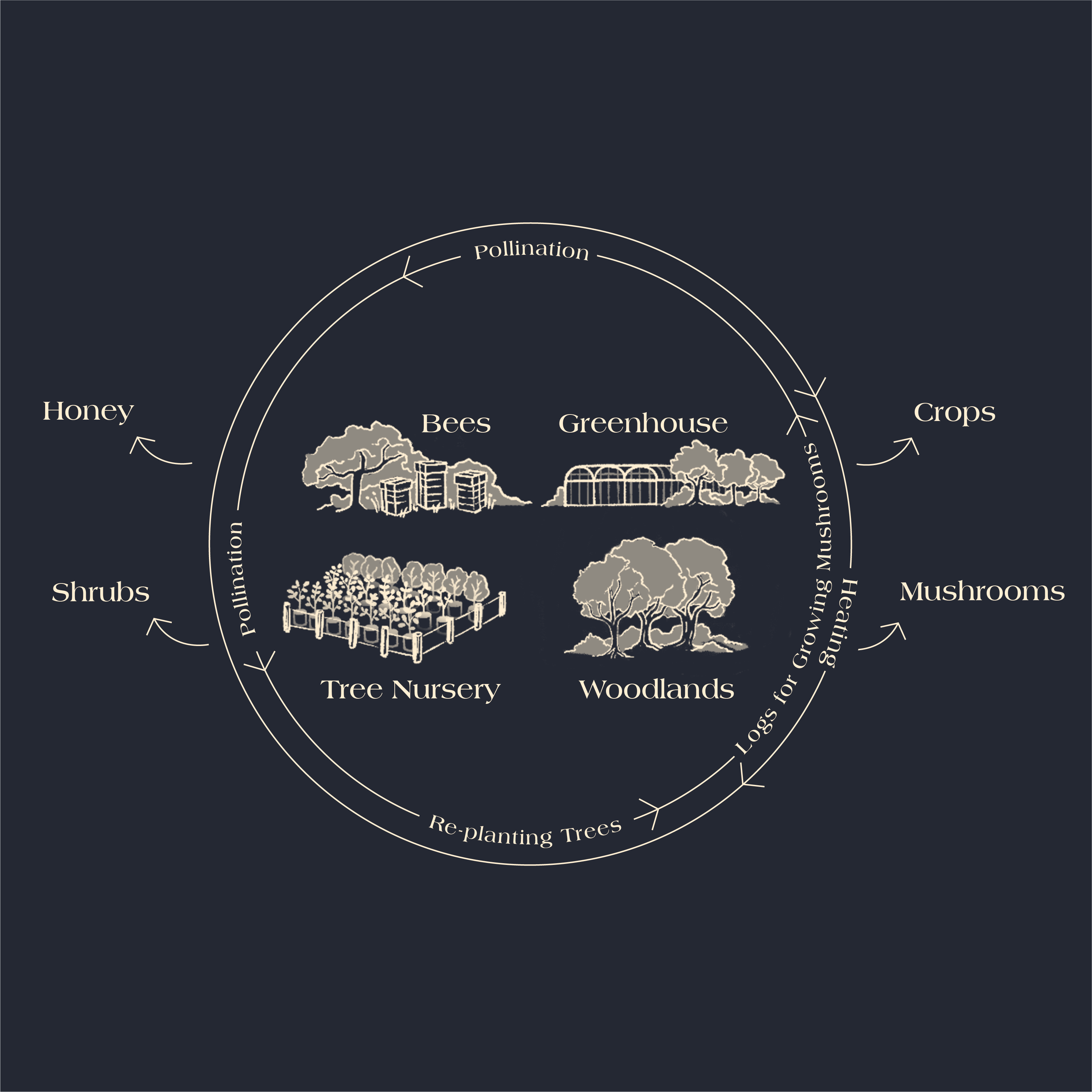
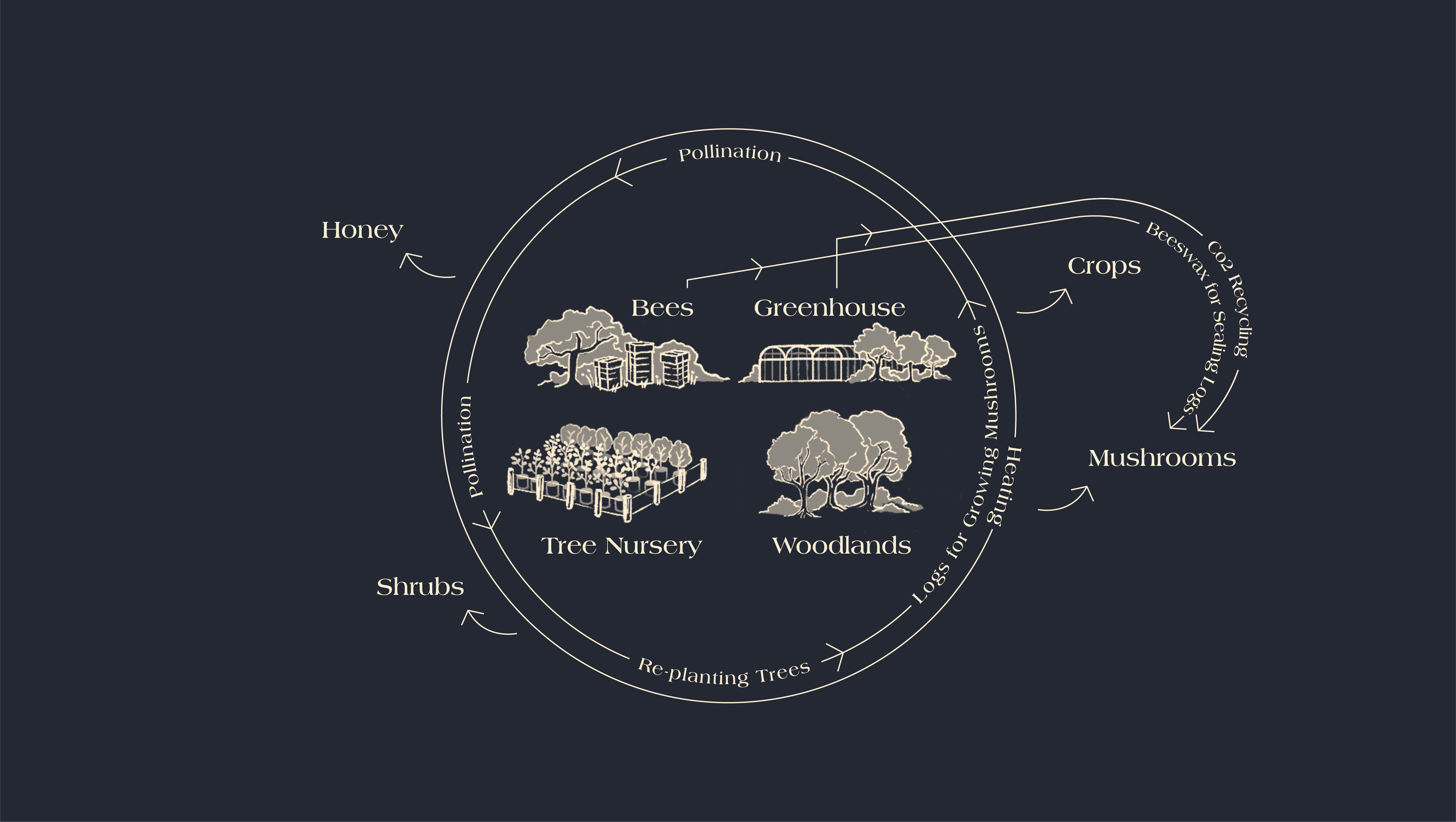
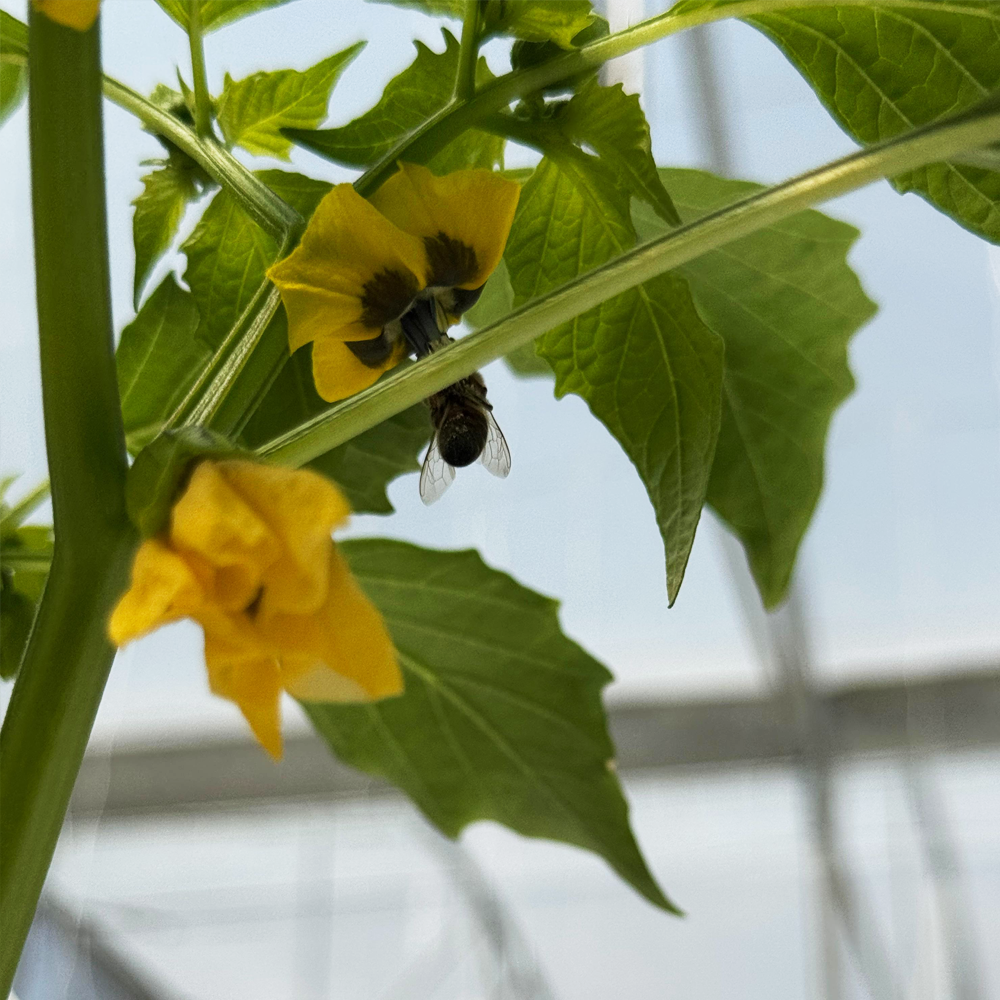
Bees and Greenhouse Cultivation
Our farm’s bees play a crucial role in maintaining the health and productivity of our greenhouse, ensuring the pollination necessary for the flowering and fruiting of our crops. Beyond their invaluable work in plant pollination, they also produce honey and beeswax, which serve additional purposes across the farm, including aiding in mushroom log inoculation.
Their contributions extend far beyond the greenhouse, making them an essential part of our agricultural ecosystem.
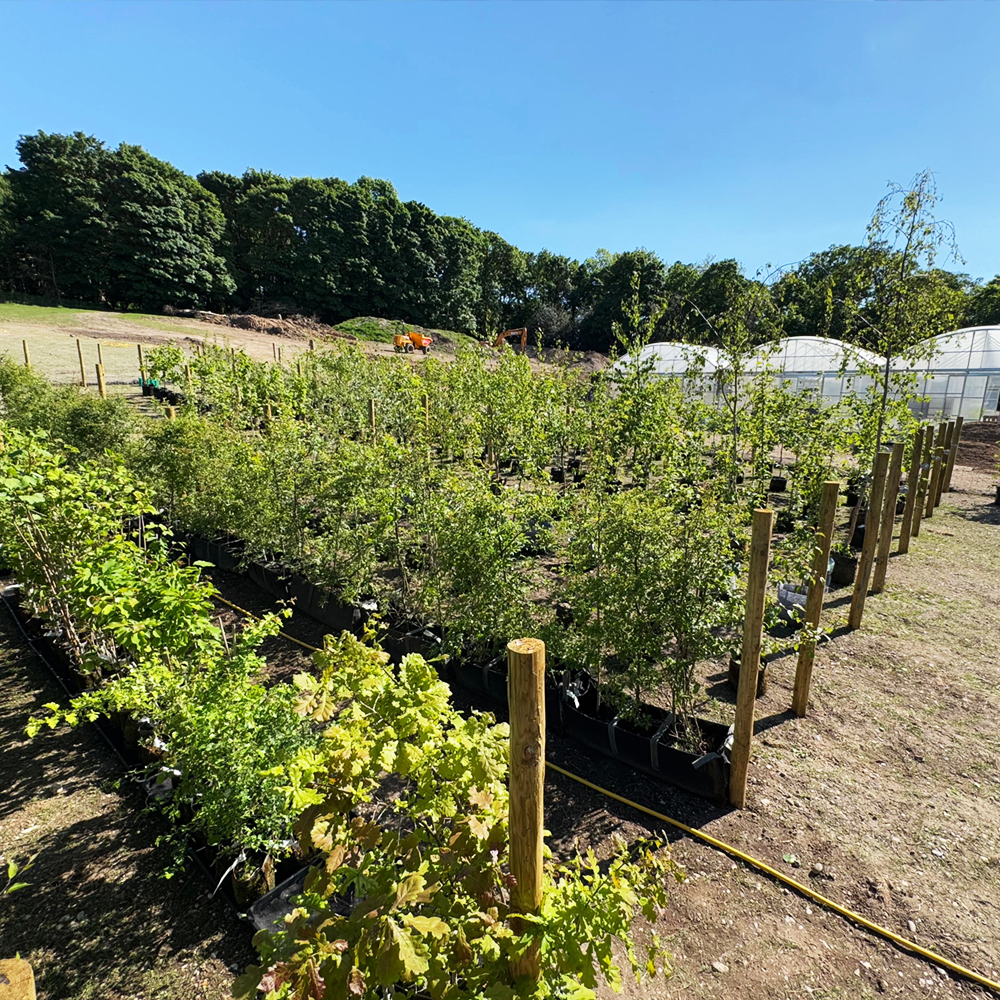
Woodland and Mushroom Production
Our woodland management follows a carefully approved plan to ensure trees are harvested sustainably. These harvested trees play a vital role in log-based mushroom cultivation, where the timber is inoculated and sealed with beeswax to promote growth.
As the logs naturally decompose, their organic matter is recycled into compost, enriching the soils across the woodland and grazing areas.
To maintain the health and biodiversity of the woodland, we actively regenerate it through our dedicated onsite native tree nursery, where we propagate local species to replenish felled trees and support a thriving ecosystem.
Bucksbury Farm functions as a self-sustaining circular system, where woodland, greenhouse, bees, mushrooms, and renewable heating systems all play interconnected roles.
Each component benefits from the others, creating a farming model that is:
Environmentally responsible
Resource-efficient
Resilient
Productive and energy-independent
Our integrated system demonstrates a forward-thinking approach to regenerative agriculture, where biodiversity, productivity, and sustainability go hand in hand.


